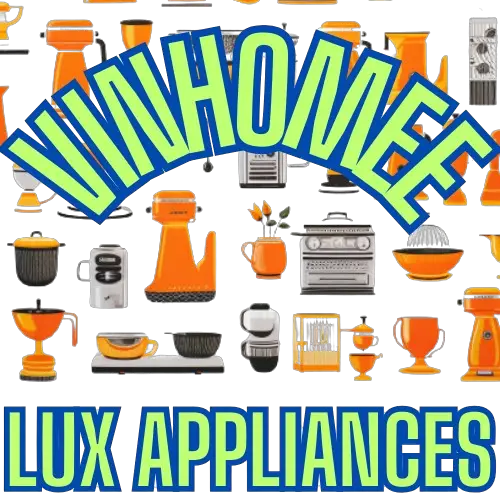In the ever-evolving world of smart home automation, safety and security are of paramount importance. As homeowners and tech enthusiasts continue to embrace the convenience and efficiency that smart home managers offer, there arises a crucial question: Is smart home manager safe? In this article, we will explore the 5 key safety features of smart home managers, providing invaluable insights and actionable steps to ensure the utmost security in your automated living space. From encryption protocols to remote access controls, we will delve into the essential elements that make smart home managers a reliable and secure solution for your home automation needs. So, let’s embark on this enlightening journey and discover how to safeguard your smart home manager effectively.
Introduction
In today’s rapidly advancing technological landscape, the concept of a smart home has become increasingly popular. From voice-controlled assistants to automated lighting and security systems, smart homes offer convenience, comfort, and security. However, with these new advancements also come concerns about the safety and security of smart home managers.
Why the Safety of Smart Home Managers is Important
As we embrace the benefits of smart home technology, it is crucial to prioritize the safety and security of our devices. Smart home managers act as the central hub for controlling and monitoring various smart devices within a home. Ensuring the safety of these managers is vital to protect ourselves and our homes from potential threats.
Encryption and Authentication
One of the key safety features of smart home managers is encryption and authentication. Encryption ensures that data transmitted between devices and the manager is secure and cannot be intercepted by malicious third parties. Authentication protocols help verify the identity of users and devices connecting to the manager, preventing unauthorized access.
By implementing robust encryption algorithms and authentication mechanisms, smart home managers can establish a secure communication channel, safeguarding sensitive information and protecting against potential cyber attacks.
Network Security
Network security plays a crucial role in the overall safety of smart home managers. Smart homes rely on a network infrastructure to connect and communicate with various devices. It is essential to secure this network to prevent unauthorized access and potential breaches.
Utilizing firewalls, intrusion detection systems, and virtual private networks (VPNs), smart home managers can create a secure network environment. These security measures act as barriers, preventing unauthorized access and protecting both the manager and the connected devices from potential threats.
User Authentication and Access Control
User authentication and access control are integral components of ensuring the safety of smart home managers. Implementing strong passwords and multi-factor authentication adds an extra layer of security, ensuring that only authorized individuals can access and control the smart home manager.
Access control mechanisms allow homeowners to define specific permissions and roles for different users, preventing unauthorized individuals from gaining control of the smart home manager. By setting up user accounts with unique credentials and assigning appropriate access levels, the risk of unauthorized access is significantly reduced.
Firmware Updates and Vulnerability Fixes
Regular firmware updates and vulnerability fixes are essential for maintaining the security of smart home managers. Manufacturers frequently release updates to address security vulnerabilities and patch any weaknesses in the system. It is crucial for homeowners to regularly update their smart home manager’s firmware to ensure it is equipped with the latest security enhancements.
By keeping the manager’s firmware up to date, homeowners can mitigate potential security risks and stay protected against emerging threats. Additionally, manufacturers often release patches and fixes in response to identified vulnerabilities, ensuring that smart home managers remain secure and resilient to attacks.
Privacy Protection
Another critical aspect of smart home manager safety is privacy protection. Smart devices within a home continually collect and transmit data to the manager. Safeguarding this personal information from unauthorized access or misuse is of utmost importance.
Robust privacy protection measures, such as data anonymization, encryption, and secure storage, are essential for preserving the privacy of homeowners. By implementing privacy-focused practices and technologies, smart home managers can ensure that sensitive information remains confidential and secure.
Intrusion Detection and Prevention
Intrusion detection and prevention systems are vital for identifying and mitigating potential threats to smart home managers. These systems monitor the network for suspicious activities and unauthorized access attempts, alerting homeowners to any anomalies or potential breaches.
By detecting and thwarting attacks in real-time, intrusion detection and prevention systems provide proactive security measures to safeguard smart home managers. They act as a virtual watchdog, constantly monitoring the network and taking immediate action against any potential threats.
Physical Security Measures
While much of the focus is often on digital security, physical security measures cannot be overlooked when ensuring the safety of smart home managers. Physically protecting the manager itself can prevent unauthorized access and tampering.
Homeowners can enhance physical security by placing smart home managers in secure locations, such as locked cabinets or rooms with limited access. Additionally, implementing physical access controls, such as biometric authentication or keycard systems, adds an extra layer of security to prevent unauthorized physical access to the manager.
Conclusion
The safety and security of smart home managers are paramount in the evolving landscape of smart home technology. By prioritizing encryption and authentication, network security, user authentication and access control, regular firmware updates, privacy protection, intrusion detection and prevention, and physical security measures, homeowners can ensure the safety of their smart home managers and protect their homes from potential threats.
As technology continues to advance, it is essential to stay informed and updated on the latest security practices and enhancements. By taking proactive measures to secure smart home managers, homeowners can embrace the full potential of smart home automation while maintaining peace of mind knowing that their devices and data are safe and secure.
